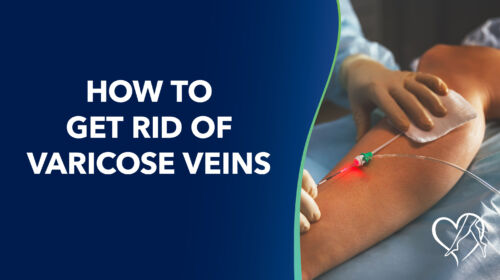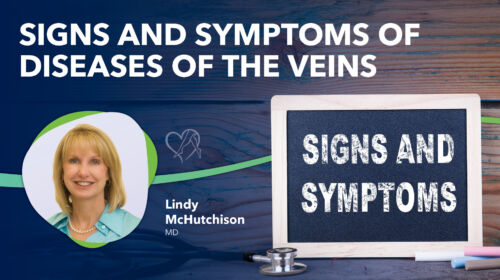
Pelvic Congestion Syndrome: Causes, Symptoms, and Treatment
Learn about pelvic congestion syndrome (PCS), a common yet often overlooked cause of chronic pelvic pain in women. This blog explains the causes, symptoms, and treatments for PCS, including its link to varicose veins and May-Thurner syndrome. Discover how vein specialists at Center for Vein Restoration diagnose and treat PCS to restore comfort and quality of life.
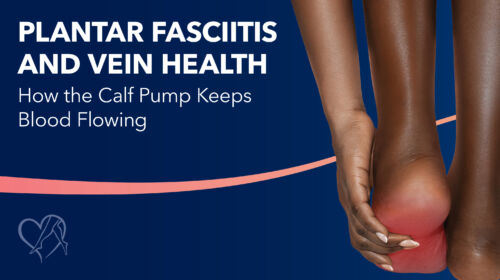
Plantar Fasciitis and Vein Health: How the Calf Pump Keeps Blood Flowing
Discover how plantar fasciitis and vein health are connected through the calf muscle pump, your body’s “second heart.” Learn how walking, supportive footwear, and expert care from Center for Vein Restoration (CVR) can improve circulation, reduce varicose and spider veins, and keep your legs healthy and pain-free.
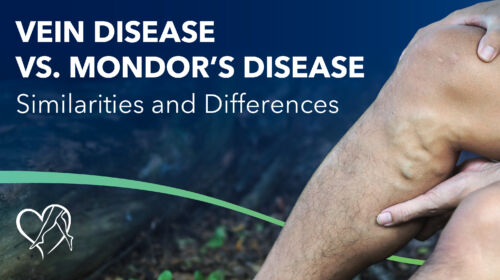
Vein Disease vs. Mondor’s Disease: Similarities and Differences
Learn the key similarities and differences between vein disease and Mondor’s disease, two conditions that can cause leg pain, swelling, or visible veins. This blog explains symptoms, causes, and treatment options so you’ll know when it’s time to see a board-certified vein specialist at Center for Vein Restoration.
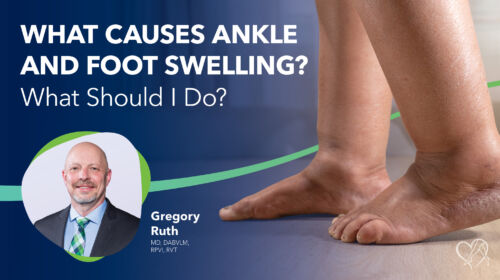
What Causes Ankle and Feet Swelling, What Should I Do?
This blog explores the most common causes of ankle and foot swelling, from varicose veins and chronic venous insufficiency to deep vein thrombosis and lifestyle factors. Readers will learn when swelling is harmless, when it signals a more serious vein problem, and the treatment options available at Center for Vein Restoration. Discover how CVR’s vein specialists diagnose and treat swelling with minimally invasive procedures to restore circulation and improve leg health.
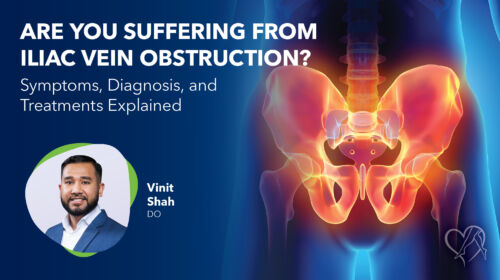
Are You Suffering From Iliac Vein Obstruction? Here’s What You Need to Know
This blog explores iliac vein obstruction (May-Thurner syndrome), a condition in which the pelvic veins are compressed, reducing blood flow from the legs. It outlines symptoms like swelling, heaviness, varicose veins, and pelvic pain, stressing the importance of early diagnosis to prevent complications such as blood clots. The article reviews modern diagnostics, minimally invasive treatments like venous stenting, and underscores the value of seeing board-certified vein specialists at Center for Vein Restoration, which offers same-day DVT rule-out services and accessible, expert vein care.
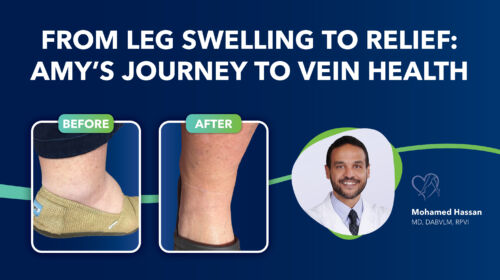
From Leg Swelling to Relief: Amy’s Journey to Vein Health
This inspiring patient story follows Amy’s journey from years of painful leg swelling and heaviness to lasting relief through treatment for chronic venous insufficiency (CVI) at Center for Vein Restoration. Readers will learn how Dr. Mohamed T. Hassan used advanced vein treatments like radiofrequency ablation and sclerotherapy—performed with comfort and compassion—to restore Amy’s mobility and confidence. If you suffer from varicose veins, swelling, or leg pain, this blog shows how expert vein care can transform your quality of life.
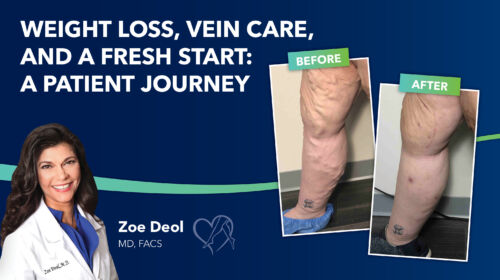
Weight Loss, Vein Care, and a Fresh Start: A Patient Journey
In this powerful patient story, learn how significant weight loss revealed painful varicose veins for Tammy, and how expert vein care at Center for Vein Restoration restored her confidence, comfort, and health. This inspiring patient journey highlights advanced vein treatments like radiofrequency ablation, microphlebectomy, and sclerotherapy, showing that minimally invasive care can deliver smooth, pain-free legs and renewed quality of life. Learn why CVR is the nation’s leader in treating varicose veins, spider veins, and venous disease.

My Legs Are Tingling. Is it Paresthesia or Problem Veins?
Tingling legs can be more than just “pins and needles”—they may signal nerve-related paresthesia or vein problems like varicose veins, spider veins, or chronic venous insufficiency. This blog explains how to tell the difference, when to see a vein doctor, and what treatments a vein specialist may recommend. Learn how Center for Vein Restoration, America’s largest physician-led vein center, provides expert care to relieve leg tingling and restore healthy circulation.
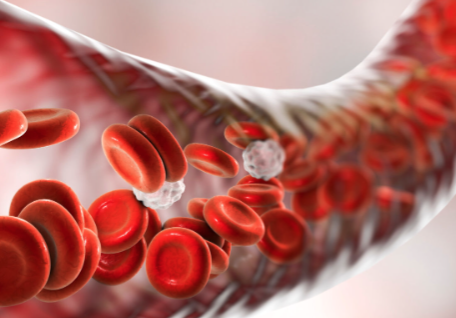 About Vein Disease
About Vein Disease
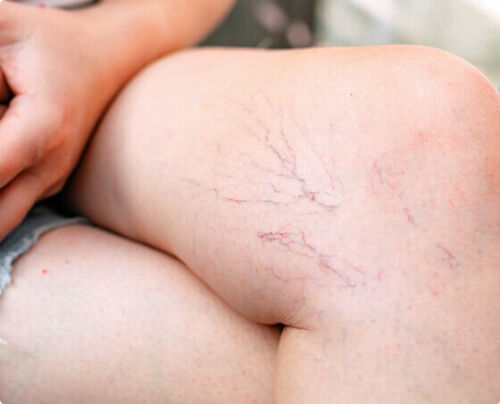 Spider Veins
Spider Veins
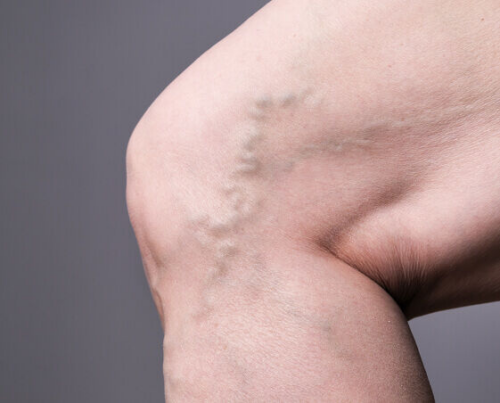 Varicose Veins
Varicose Veins
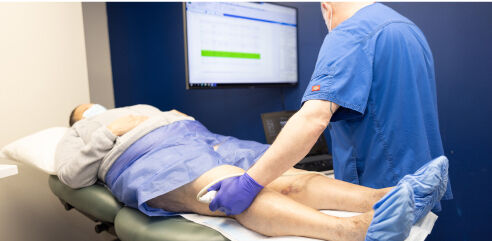 Vein Disease Treatments
Vein Disease Treatments
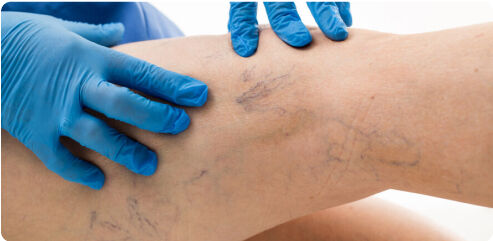 Treating Spider Veins
Treating Spider Veins
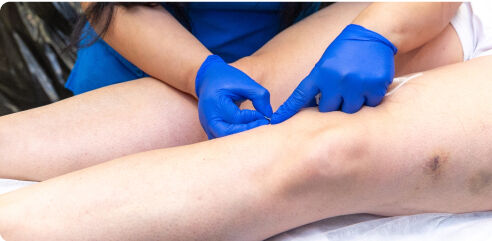 Treating Varicose Veins
Treating Varicose Veins
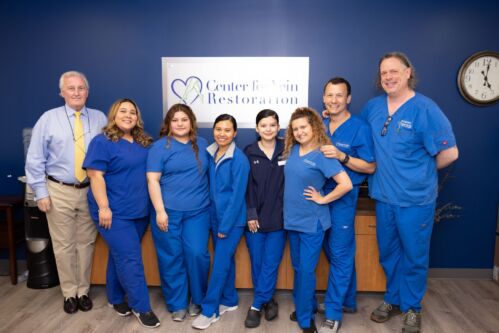 About Us
About Us
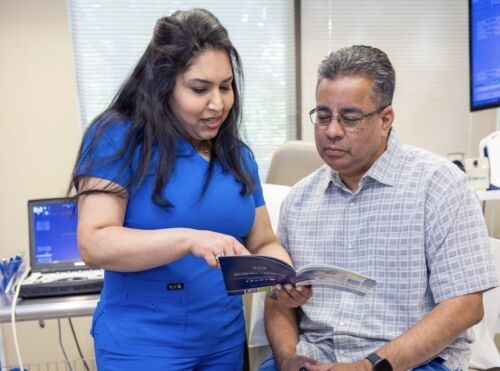 Patient Resources
Patient Resources
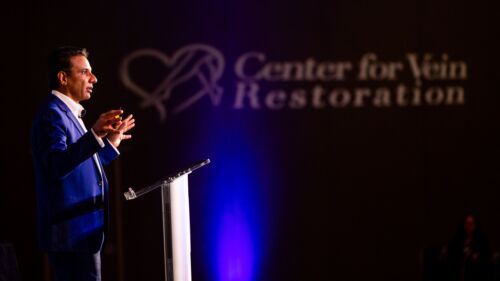 Physician Resources
Physician Resources
